Brusilov nestlings. Generals Khanzhin and Denikin
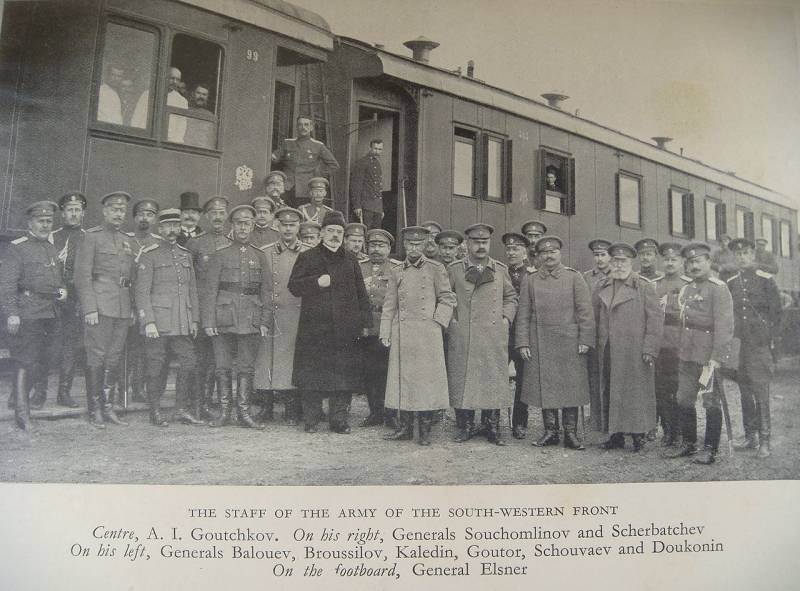
Where are the whites and where are the reds?
Today it is very difficult to understand how almost all the subordinates of the most successful Russian commander of the world war - A. A. Brusilov, ended up in the ranks of the Whites during the Civil War. With rare exceptions, the illustrious general himself and his son almost immediately sided with the Bolsheviks.
But there is no need to look for a paradox here, since Brusilov had no faith either in the success of the liberals, followers or successors of Kerensky and Co., or in the emergence of the Russian Bonaparte. Be it Kornilov, Kaledin or Dukhonin, by the way, all who served with Brusilov.
All this, despite the fact that many tsarist officers looked at the very fact of creating a new revolutionary army as the embodiment of the patriotic idea of \u1917b\uXNUMXbcontinuing the war with the Germans. The Treaty of Brest-Litovsk not only served as an impetus for discord in the ranks of the victors of October XNUMX, but also became one of the main causes of the Civil War in Russia.
В historical Literature, as, indeed, in memoirs on both sides of the barricades, has a fairly stable idea that the basis of the Red Army in the end was by no means the working Red Guard, but people from the Western and Northern fronts. Suffered, as you know, almost regular defeats, or, in the opinion of their white opponents, regiments and brigades that completely sat out in the trenches.
But the future white armies relied on those who were used to attacking and winning on the Caucasian, Romanian and Southwestern fronts. Both Brusilov himself and those who fought under him, Kornilov, Denikin, Kaledin and the much less well-known Khanzhin or Lomnovsky, were considered the generals of victories.
General Khanzhin - co-author of the Brusilov victory
Mikhail Vasilievich was from the hereditary Orenburg Cossacks and already at the age of 19 he graduated from the cadet corps, having entered military service in 1890. Just three years later, after graduating from the Mikhailovsky Artillery School, he became a cornet in the horse artillery brigade of the Orenburg Cossack army.
Following the school was the Mikhailovskaya Artillery Academy, and then service in Turkestan. The officer, greedy for knowledge, also went through an officer's artillery school, after which, already with the rank of lieutenant colonel, he got into the Russo-Japanese War. For Liaoyang and Fushun he received the Order of St. George of the 4th degree.
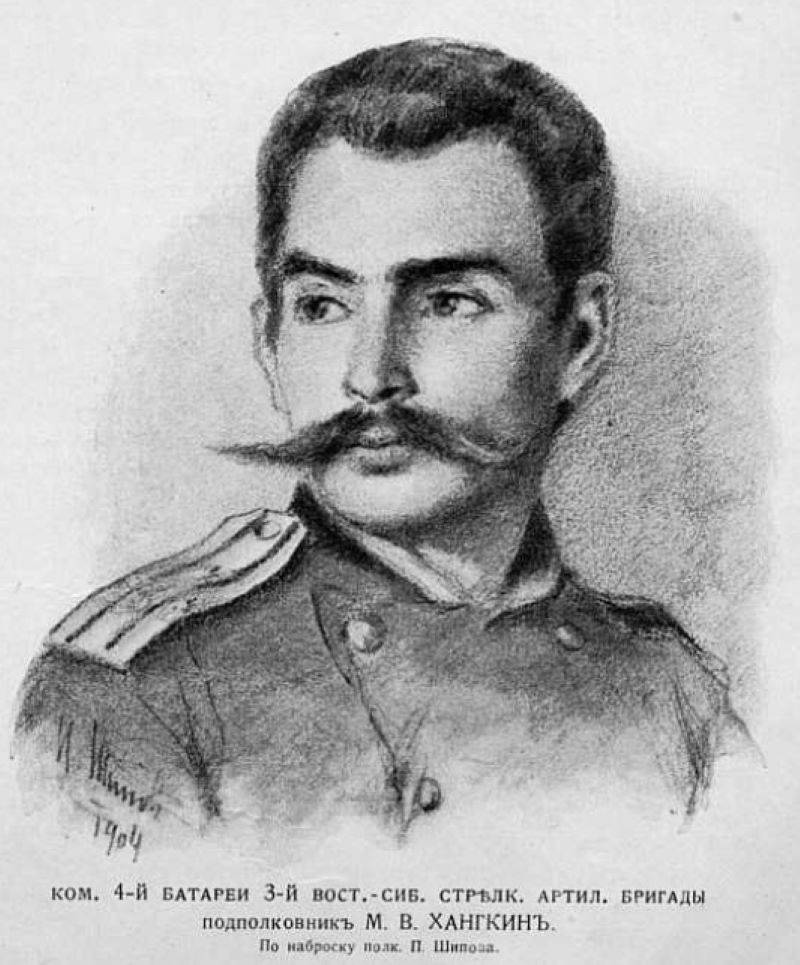
He taught at his officer's artillery school, worked in commissions for the reform of the army, as well as in a military mission in France, where he was awarded the Order of the Legion of Honor. Shortly before World War II, he became a general and became commander of the 19th artillery brigade.
After the start of active hostilities, he served as commander of the 19th Infantry Division. In January 1915 he was awarded the Georgievsky weapons for successful battles at Mevolavoch and took command of the 12th Infantry Division.
During the Great Retreat, General Khanzhin once personally led a counterattack by a reserve battalion that closed a gap in the front, for which he was awarded the Order of St. George, 3rd degree. In April 1916, when preparations for the summer offensive of the Southwestern Front had already begun, he accepted the post of artillery inspector of the 8th Army, Brusilov, under the command of General Kaledin.
She had a decisive role in the Lutsk (Brusilovsky) breakthrough. Specialists especially note the merits of General Khanzhin in organizing the artillery preparation of the operation, as well as in general the combat work of Russian guns and a few howitzers.
The almost complete liquidation of the deep lines of the Austro-German defense is the result of the brilliantly organized, efficient and accurate shooting of the Russians. In addition, the excellent organization of the regular supply of ammunition, the repair of failed guns, the rapid change of positions under the threat of return fire or aviation enemy reconnaissance.
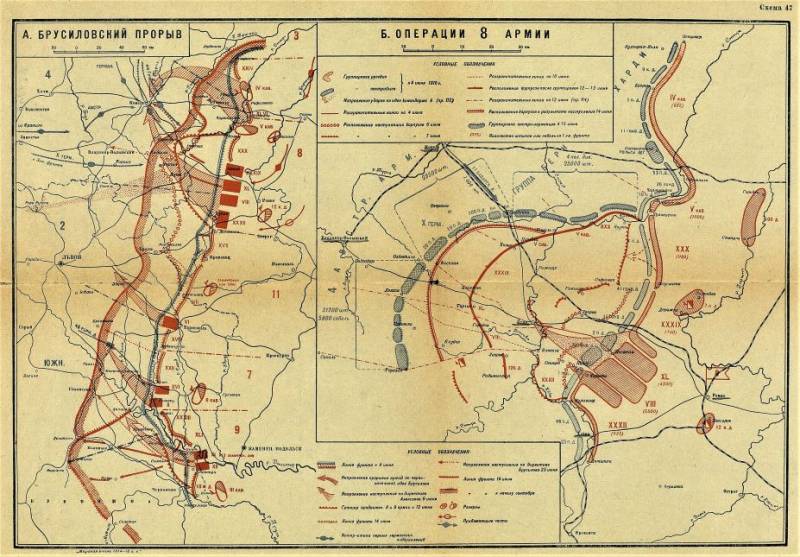
As a result of the operation, which, unfortunately, did not lead to the complete defeat of Austria-Hungary, General Khanzhin received promotion to lieutenant general and the Order of St. George, already the 2nd degree. He inspects the artillery of the Romanian front, and since April 1917 - already the entire Russian army.
The fate of the Cossack ataman
October 1917, General Khanzhin immediately accepted as a personal challenge, although he was not even invited to Kornilov's speech. The artillery inspector departed for his homeland, where he found himself in an illegal position. There is evidence that he interacted with the officer underground when detachments of white rebels were formed in the Southern Urals.
Whatever it was, by the summer of 1918 he commanded the Ural Army Corps, which under Kolchak became the 3rd Ural. In January 1919, he was already in command of the Western Army and was advancing with it on Ufa, Samara and Kazan. The Whites then did not reach the Volga, only a few tens of kilometers.
The supreme ruler Kolchak promoted Khanzhin to artillery general, but the Eastern Front of the Reds in the summer of 1919 unleashed a series of crushing blows on the Whites. The general, under whose command almost the only combat-ready formation remained, was even accused of "inability to stop the retreat and decomposition of the troops."
Denikin - the commander of the "iron" shooters
Anton Ivanovich Denikin was the son of an elderly retired major of the border service, a native of Saratov peasants and a Pole from an impoverished, so-called fractional gentry. He chose a military career for himself, having lost his father at the age of 13, he made his way as best he could. After a real school in Lovich, he served for three months as a volunteer and entered the Kiev Infantry Junker School.
After graduating from it, he served, however, in artillery, and three years later he managed to enter the Nikolaev Academy of the General Staff. From there, he was even once expelled for the tail on the history of military art, but was accepted again. He completed the course successfully - as a captain, but was not assigned to the General Staff, but this is a different story.
Denikin participated in the Russo-Japanese War, mainly in staff positions, including in the 3rd Trans-Baikal Cossack Division of General Rennenkampf, and in the Battle of Mukden under the command of General Mishchenko. He finished the war with two military orders with the rank of colonel.
Before the First World War, he commanded a battalion, a regiment, served in the Kiev military district and became a subordinate of General Brusilov in the fall of 1914 already with the rank of major general. However, the position of Quartermaster General of the 8th Army was clearly not to the liking of Denikin, who was almost two decades younger than his commander.
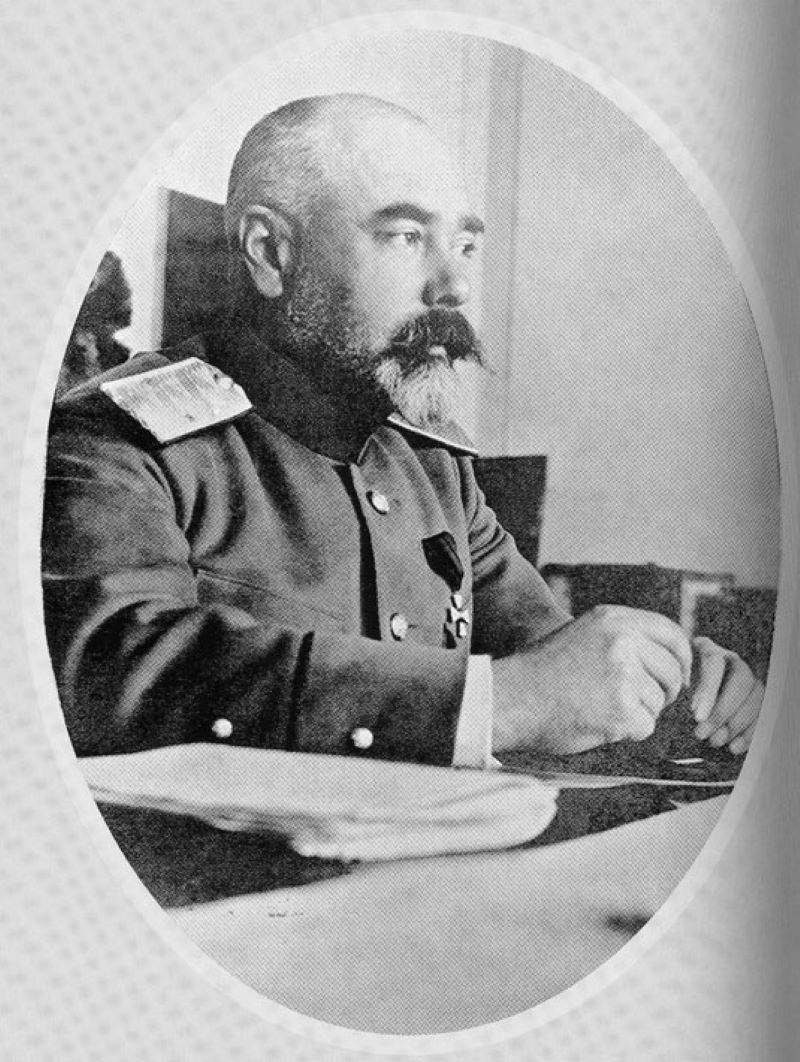
He petitioned to be appointed to the vacant post of commander of the legendary "iron" 4th Infantry Brigade. With her, Denikin took Grodek, for which he received the St. George weapon, almost captured the Austrian Archduke Joseph, fought in the Carpathians, without stopping trying to advance, even when the entire front was retreating.
At the beginning of 1915, he did not accept a “foreign” division and waited until his “iron” brigade was deployed to the division. Denikin's troops especially distinguished themselves in the Brusilov breakthrough, it was they who took Lutsk, after which the entire operation was initially named.
Moreover, Lutsk was taken by his "iron" troops for the second time, before that there was a capture that embarrassed the Austro-Germans in September 1915, when it seemed that after the Great Retreat the Russians were no longer capable of anything. Denikin was granted another set of St. George's weapons with a characteristic inscription "For the two-time liberation of Lutsk."
The whitest of the generals
February 1917 found Denikin on the Romanian front as commander of the 8th Army Corps from the 8th Brusilov Army. Soon he handed over the corps to General Lomnovsky, another of Brusilov's subordinates, who in Galicia headed the headquarters of the 8th Army, and then commanded the 15th Infantry Division.
The provisional government appointed Denikin chief of staff to the new commander-in-chief, General Alekseev. Denikin, who was a quarter of a century younger, worked well with him, but he did not want to remain subordinate to General Brusilov, who replaced Alekseev.
He knew that he considered him too quick, however, like General Kornilov. Soon, just Kornilov replaced Brusilov as Supreme Commander-in-Chief, raised a rebellion against Kerensky, who, along with many other officers, supported Denikin.
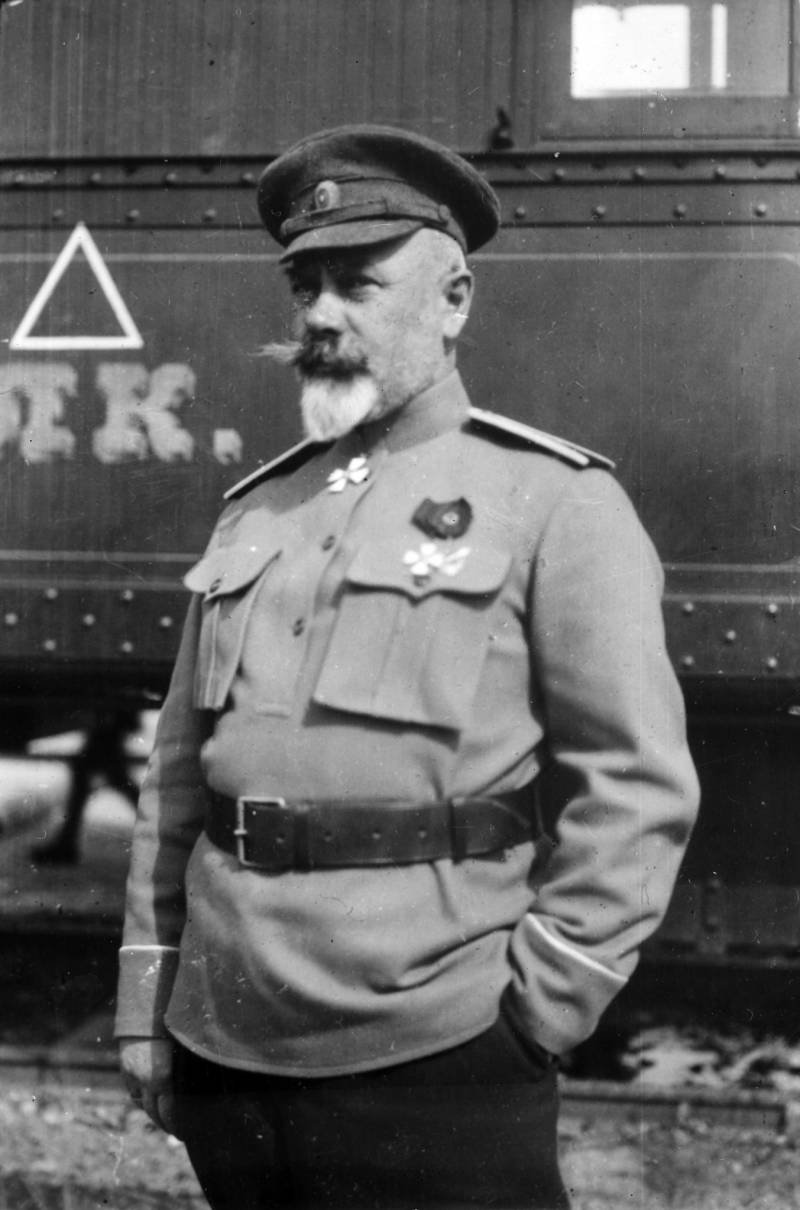
And already in the late autumn of 1917, both generals, who were already opposed by the Bolshevik Red Guard, took up the white cause. Brusilov, who a little later took the side of the Reds and even signed an appeal in support of the Red Army, Denikin sharply criticized for this, which, however, did not prevent him from recognizing him as the best military leader in the world war.
Under the leadership of Kolchak
It remains to be recalled that in the Civil War, fate brought Generals Khanzhin and Denikin to Admiral Kolchak, although in different ways. Khanzhin was the de facto deputy of the Supreme Ruler at the front, Eastern or Siberian, commanding the most combat-ready Western army there.
The defeat from the troops of Frunze, Tukhachevsky and Chapaev almost became the beginning of the end for Khanzhin, but Kolchak chose not to irritate the Orenburg and Ural Cossacks with harsh measures. Moreover, Khanzhin became the Minister of War and the real deputy of the Supreme Ruler in his office.
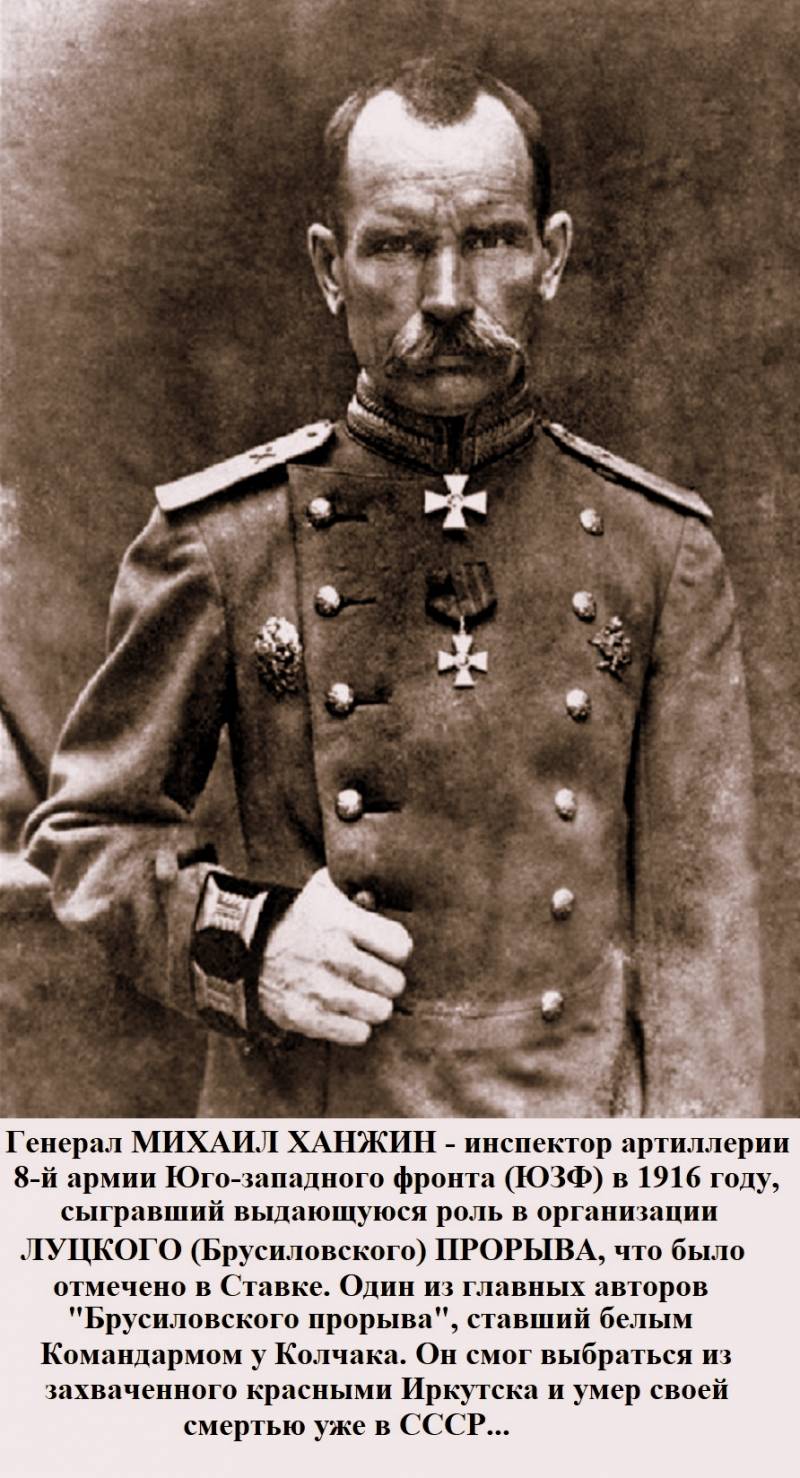
At the end of his career, General Khanzhin became one of the three members of the so-called "Trojectory" - a government committee that replaced Kolchak in the conditions of the complete collapse of his regime. When Irkutsk was captured by the Socialist-Revolutionaries, Khanzhin fled, while two others from the Trojectory were shot, as, indeed, was Admiral Kolchak.
General Denikin, having led after Alekseev and Kornilov, first the Volunteer Army, and soon all the Armed Forces of the South of Russia, the Armed Forces of South Russia, also, albeit formally, ended up near Kolchak. Almost on the direct instructions of the allies, he accepted the decorative post of Deputy Supreme Commander of the Russian Army.
The scenery remained in force when Kolchak was already shot in Irkutsk, and when Denikin handed over the command of the All-Union Socialist League to General Wrangel. However, the authority of the general remained with him forever, and many of the surviving "whites" and their descendants recognized the correctness of Denikin when he undoubtedly sided with the USSR in the war with Nazi Germany.
However, later this did not in the least prevent Denikin from calling on the United States and Great Britain for a crusade against the communists in Russia. General Khanzhin by that time had survived many years of emigration in Manchuria and arrest in Dairen. He spent 10 years in the camps and was granted an amnesty in his ninth decade. He lived with his sons in Orsk and in the Kazakh Dzhambul, where he died in 1961.
Both generals eventually rested in Moscow. The ashes of Denikin, who died in 1947 in the US state of Michigan, were transferred several years ago to the Donskoy Monastery, where the Memorial to the White Soldiers has now been created. And the ashes of General Khanzhin modestly took their place at the Khovansky cemetery, one of the largest in the capital.
Information